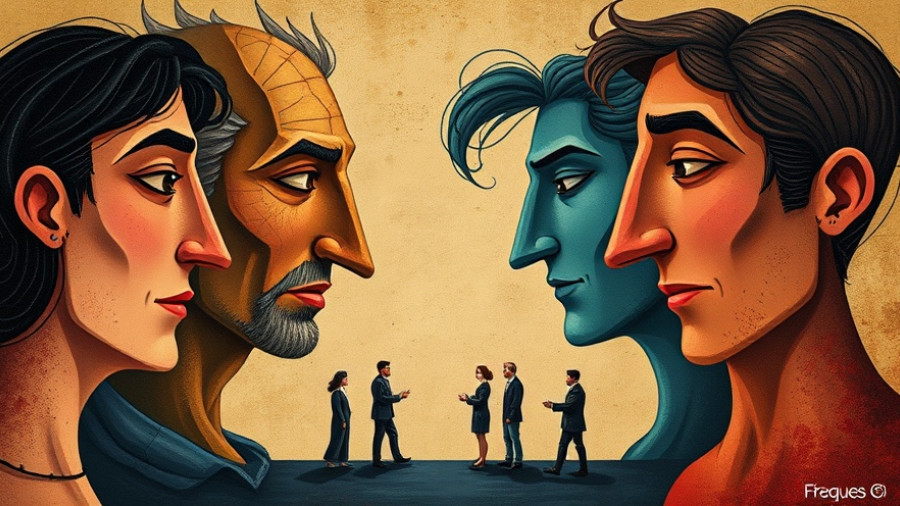
Journey to Forgiveness: A Personal Narrative
Forgiveness isn't just a concept; it can be a lifeline. The search for forgiveness often feels like an uphill battle, fraught with challenges and emotional turbulence. For many, including myself, learning to forgive—whether it's others or oneself—can transform mental health and the overall quality of life. As someone who has faced the emotional turmoil of anxiety disorders and depression, I found my own path to forgiveness through the transformative power of meditation.
The Power of Meditation in Healing
Meditation is often touted as a powerful tool for stress management and emotional well-being. Through mindfulness techniques, I experienced a reframing of negative thoughts that once dictated my daily life. While I had struggled with anxiety symptoms that ranged from panic attacks to generalized anxiety disorder, the tranquil stillness I found in meditation became an oasis of calm. Research indicates that practices such as mindfulness can alleviate symptoms of anxiety and depression.
From Pain to Peace: How I Learned to Forgive
Forgiveness may have felt out of reach during my hardest moments, but meditation taught me to sit with my feelings without judgement. I began to understand that holding onto anger and hurt only perpetuated my suffering; it served as a barrier to my own mental health recovery. Guided meditation sessions encouraged me to acknowledge my emotions, allowing them to surface and dissipate. Gradually, I learned the invaluable lesson of self-compassion, which made it possible to extend forgiveness to those who had wronged me.
The Emotional Rollercoaster of Forgiveness
Forgiveness is frequently misconstrued as a linear process. Yet, for many individuals—including those battling anxiety or depression—it resembles more of a rollercoaster ride with highs and lows. After initially feeling a sense of release through meditation, I found myself confronting lingering feelings of anger. This part of the journey is crucial because it brings to light the hard truths about emotional wounds and resilience building. Understanding that it's okay to have setbacks made the journey more manageable.
Current Context: Mental Health in a Post-Pandemic World
Today, we live in a complex landscape that deeply affects our mental health, with issues such as COVID-19 anxiety and economic stress reverberating through communities. Many people are struggling with mental health challenges, including anxiety disorders heightened by uncertainty and isolation. In this environment, self-care practices like meditation are more relevant than ever.
The Importance of Community and Support
Many individuals find that sharing their stories, like mine, helps reduce the stigma surrounding mental health issues. Community outreach programs and support groups play an instrumental role in facilitating conversations about emotional well-being. These connections can empower us to seek help through options such as counseling, psychotherapy, and traditional healing practices. Breathing exercises and relaxation techniques, often integrated into these discussions, provide practical methods to manage anxiety and foster resilience.
Actionable Insights: Cultivating Forgiveness
If you're struggling to forgive, consider beginning your own meditation journey. Start by reserving just 10-15 minutes each day for quiet reflection. Guided meditations focusing on forgiveness can be particularly effective. Apps and online resources provide access to numerous tools and techniques tailored to mental health needs. Remember, forgiveness does not require the absence of pain; it requires the courage to acknowledge it and the desire to move forward.
Conclusion: A Call to Action
Healing through forgiveness may seem daunting, but it’s an invaluable journey worth embarking on. Embrace meditation not just as a practice but as a potential pathway to emotional freedom. We have the power to transform our lives and uplift our communities. If you or someone you know is facing similar challenges, consider reaching out for support. The journey toward mental health and forgiveness is profoundly personal, yet it flourishes through shared experiences and communal resilience.
 Add Row
Add Row  Add
Add 




Write A Comment